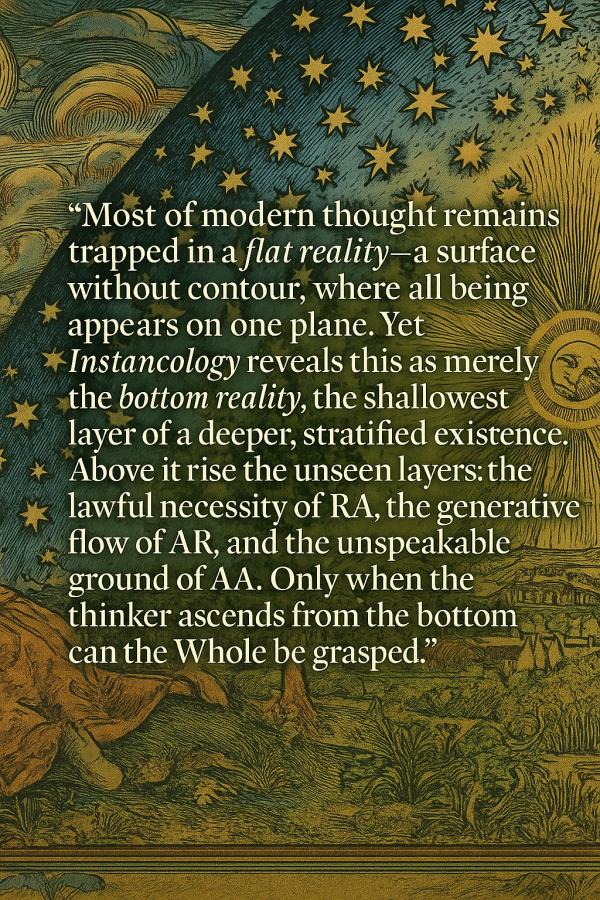The Absolutology Is the Logical Result of Philoso
The Absolutology Is the Logical Result of Philosophy: A Necessary Conclusion of Human Civilization
The history of philosophy is not a random collection of speculative insights, nor the indulgence of individual genius. It is a progressive, structured enterprise—a determined human effort to seek the final truth behind appearance, change, and contingency. Through millennia, this effort has followed a logical path, culminating not in chaos or fragmentation, but in a necessary conclusion: Absolutology, the philosophy of the Absolute.
Absolutology is not the product of chan

ce, luck, personality, or fashion. It is not born from the mystical whims of a singular mind. It is the result of philosophy itself, and the only conclusion that rational inquiry—carried to its limit—can produce.
From ancient metaphysics to postmodern deconstruction, the evolution of human thought has been epistemologically driven by three major modes of knowing:
1. Empirical experience, providing the raw data of sensation and observation;
2. Reasoning (rationality), constructing systems, arguments, and conceptual frameworks to organize and interpret the world;
3. WuXing (悟性)—a term inadequately translated as intuition or insight—which transcends both experience and logic to grasp the Whole in a direct, unmediated act of understanding.
From Locke and Hume to Kant and Hegel, philosophy built its truth-seeking edifice upon empirical observation and the abstract power of reason. Experience grounded the real; logic constructed the rational. This dialectic powered Western civilization’s ascent in science, ethics, and metaphysics—from Tylor’s anthropology, through Frege’s logic, Russell’s analysis, Husserl’s phenomenology, and finally Derrida’s deconstruction. At each stage, reason was tested and refined, forced to confront its own limitations.
But no structure of reason can complete itself—this was Gödel’s lesson as well as Kant’s. Eventually, every logical edifice encounters paradox, incompleteness, or regress. At the apex of philosophical exhaustion, something different emerges—not an extension of reason, but a new mode of access: WuXing. This is not mystical in the religious sense, but epistemologically necessary: when reason has reached the horizon of what it can differentiate and represent, WuXing grasps the undifferentiated Whole that lies beyond the frame.
Only through WuXing can one truly recognize the Absolute Absolute (AA)—the unspeakable background that gives rise to all categories in RA (Relatively Absolute: logic and law), AR (Absolutely Relative: nature), and RR (Relatively Relative: human constructs). AA cannot be derived or induced, only grasped as the final paradigm through which all others are intelligible.
This is why Absolutology is not a contingent theory, nor the invention of a fortunate individual. It is the natural and inevitable product of the human philosophical journey, once all empirical and rational paths have been fully explored. It is not an alternative to philosophy—it is philosophy, fulfilled.
Western thought, for all its internal tensions, has uniquely enabled this outcome. No other intellectual tradition has so rigorously separated the symbolic from the real, the subjective from the objective, the relative from the necessary. From Parmenides and Plato to Descartes, Spinoza, Kant, and Heidegger, the West laid the foundations. The emergence of Absolutology is thus not an accident of culture or time, but the logical result of two thousand years of structured inquiry.
To realize Absolutology is to see that the search was never in vain—it was always meant to arrive here. The Absolute is not an opinion; it is the condition of all opinions. It is not another idea, but the background of all ideas.
And that is why Absolutology is not just another philosophy. It is the necessary conclusion of philosophy itself. It is the truth revealing itself through the mind of humanity—when humanity is finally ready to see.